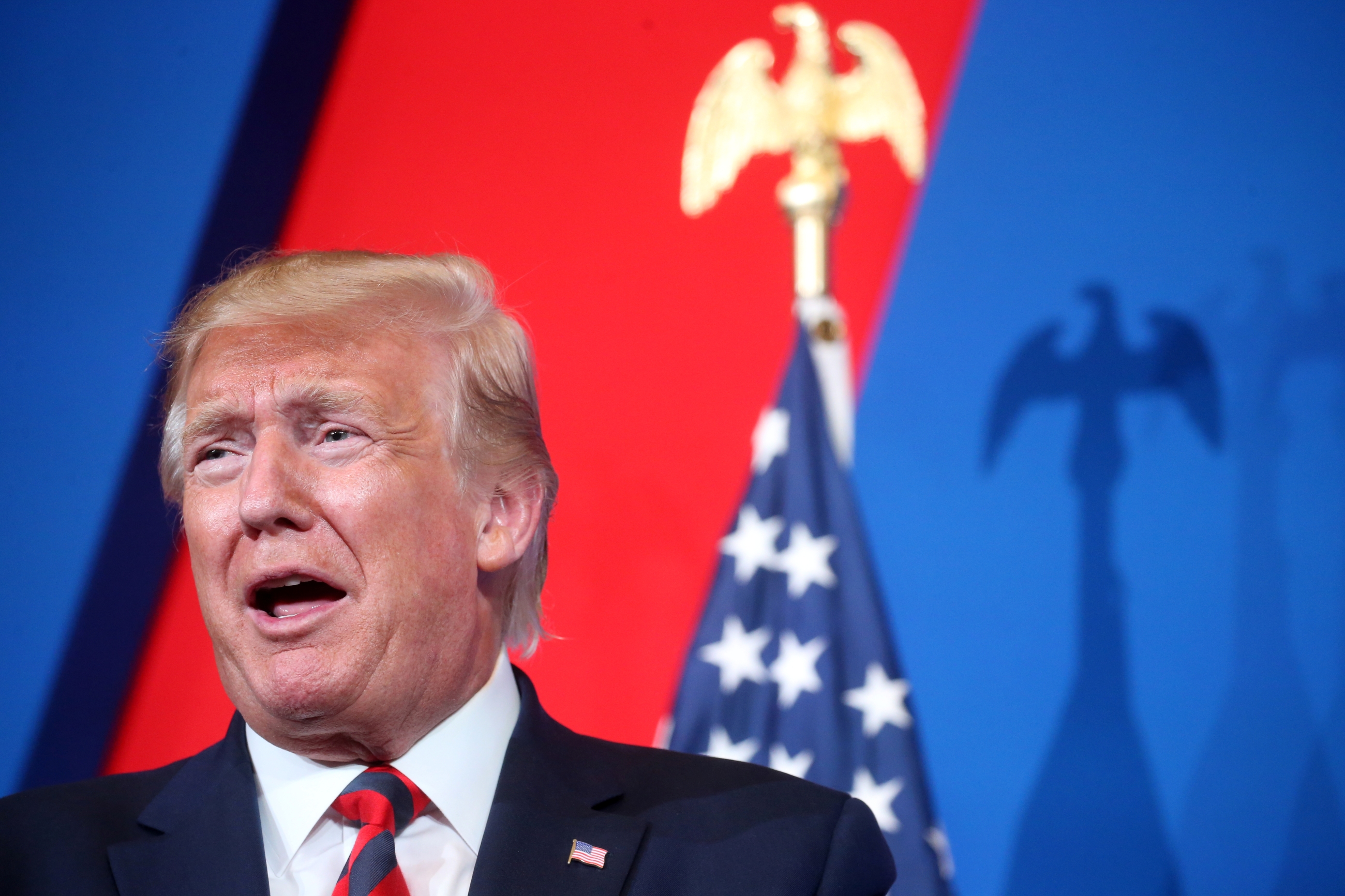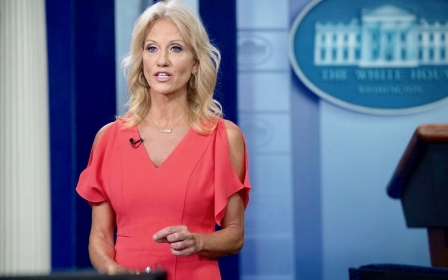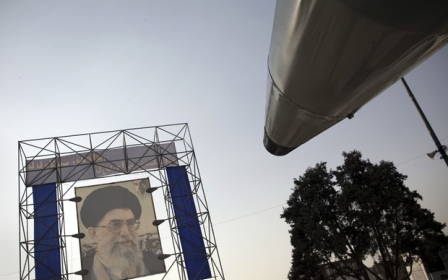Trump said he's waiting for Saudi Arabia's signal on Iran. Rebuke followed

Faced with the prospect of costly escalation that could upend the Middle East and lead to a devastating war, Donald Trump has gone to a familiar place to share his thoughts with world leaders and the US public: Twitter.
Since Saudi oil facilities were attacked on Saturday, Trump has posted a barrage of tweets, discussing a possible military response against Iran, congratulating himself for US energy policies and voicing support for his allies in Riyadh.
Critics have long berated Trump's "Twitter diplomacy", but one Tweet he sent late on Sunday particularly drew the ire of his opponents.
Trump said the US was "locked and loaded" against Iran and "waiting to hear from the Kingdom as to who they believe was the cause of this attack, and under what terms we would proceed!"
Stay informed with MEE's newsletters
Sign up to get the latest alerts, insights and analysis, starting with Turkey Unpacked
Detractors immediately accused the president of risking a regional war at the whim of Saudi Arabia.
Yemen's Houthi rebels had claimed responsibility for Saturday's attack on the Saudi facilities, which halted 5 percent of the world's oil supply.
But Washington blamed Tehran for the incident. And on Monday, unidentified US officials told US media outlets that the attack was launched from Iranian territories.
The intensifying tensions left Trump's critics worried that he will follow Saudi Arabia's lead into war without consulting with Congress.
"Mr. Trump, the Constitution of the United States is perfectly clear. Only Congress - not the president - can declare war," said Senator Bernie Sanders, who is running for president.
"And Congress will not give you the authority to start another disastrous war in the Middle East just because the brutal Saudi dictatorship told you to."
Beto O'Rourke, another Democratic presidential candidate, also admonished the White House over Trump's stance.
Early on Monday, Trump appeared to retract his call for talks with Iranian leaders, accusing - falsely - what he called "Fake News" of incorrectly reporting that he would negotiate with Iran without preconditions.
Both Trump and Secretary of State Mike Pompeo have said publicly that the US administration is willing to talk to Iran without preconditions.
The about-face on talks all but ruled out a possible meeting between Trump and his Iranian counterpart Hassan Rouhani at the UN General Assembly next week.
On Monday, critics accused Trump of surrendering his foreign policy to Saudi Arabia. Since coming into office in 2017, Trump has bolstered US-Saudi relations, visiting the kingdom on his first foreign trip as president.
Trump has also tried to shield Mohammed bin Salman after the CIA determined that the powerful crown prince was behind the assassination of Saudi journalist Jamal Khashoggi.
Moreover, he has used his presidential veto twice to abort US lawmakers' efforts to end Washington's support for the kingdom's war in Yemen and halt weapon sales to Riyadh.
"We shouldn't be surprised at Trump's acknowledgement that the Saudis dictate our options. Even if he's never been so forward about it, he's long ceded our foreign policy to Riyadh," Ned Price, a former CIA analyst, wrote on Twitter on Monday .
"The war in Yemen. Brinkmanship w Iran. Even looking the other way when they murder a US resident."
Laurence Tribe, a Harvard law professor, wrote that Trump seems prepared to allow "murderous Prince Mohammed bin Salman" to dictate when the US strikes Iran. "So we have a Saudi Commander in Chief. Welcome to Trumplandia."
Justin Amash, a Congressman who recently defected from Trump's Republican party, and other lawmakers stressed that Congress alone has the authority to declare war.
"Under our Constitution, the power to commence war lies with Congress, not the president and certainly not Saudi Arabia. We don’t take orders from foreign powers," Amash said.
Shireen al-Adeimi, an assistant professor at Michigan State University, called on Congress to "stop this madness now".
"Look forward to waking up and finding out what Mohammed bin Salman has decided to do with the US military and American foreign policy," former Obama adviser Ben Rhodes wrote in the early hours of Monday after Trump's tweets.
Middle East Eye delivers independent and unrivalled coverage and analysis of the Middle East, North Africa and beyond. To learn more about republishing this content and the associated fees, please fill out this form. More about MEE can be found here.





